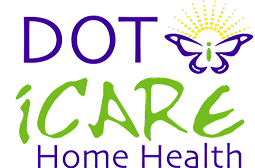Key Components to Healthy Aging

What comes to mind when you see the word Health?
Does it create positive or negative thoughts about your own health condition? We all have “health” but our quality of life depends on if its good health or bad health. As we recognize World Health Day this month we want to address some key components to healthy aging:
1. HEALTHY EATING
Food nourishes the body and gives us energy to function each day. Healthy eating is vital to sustaining good health, aging well and reducing risk of chronic disease. A healthy diet is rich in fruits, vegetables, plant based proteins and beans, low in animal fats & proteins and low in sugar and sodium. Sodium is an essential nutrient however most Canadians eat more than double the required daily amount. Too much sodium can lead to high blood pressure which is a factor in stroke and heart disease. Sodium is also linked to osteoporosis which is of special concern to seniors due to increased risk of fractures. Seniors should not consume more than 1300 mg/day. Read labels on packaged & processed products to make sure you are within the guidelines.
2. INJURY PREVENTION
Falls are a serious risk to senior health and safety. Some guidelines to keep in mind to prevent accidents from happening are:
- Don’t be in a rush – take your time to avoid tripping
- Keep stairs and walkways free from clutter, and ice/snow in winter and keep them well lit
- Use handrails or grab bars to support yourself and use a cane if required
- Maintain good vision – poor eyesight can cause falls
- Know what the side effects are of prescriptions as some meds can make one prone to dizziness
- Wear proper fitting shoes – make sure laces are tied tight and wear the proper shoes for the terrain you are walking on
3. ORAL HEALTH
Maintain proper daily dental hygiene, even if you wear dentures. Heart disease is linked to dental issues, be sure to visit your dentist regularly.
One little tip that is often overlooked is to change your toothbrush every few months to make sure you are brushing with good bristles but also and very important is to replace your toothbrush after you have had a cold or flu! Think of all those germs lurking in your toothbrush! Keep your mouth hydrated with water to flush away bacteria – some medications create dry mouth which contributes to cavities.
4. PHYSICAL ACTIVITY
Keeping active doesn’t have to involve running marathons or joining a gym.
It is important to keep the body moving to strengthen muscles, lungs and increase energy in the body by keeping the blood and lymphatic fluids circulating. Simple exercises like walking around the block or the shopping mall several times a week are all that is required. Also walking is a great weight bearing exercise that helps to keep bones strong which is essential for seniors to avoid fractures. Being sedentary contributes to chronic disease and disability.
Maintain good health by getting some form of physical activity every day. Walk, ride a bike (a stationary bike is great for indoor use), swim, even taking the stairs instead of the elevator are all great ways to incorporate physical activity and keep the body moving!
5. MENTAL HEALTH
A component of a healthy mind is being social. Seniors living alone often are depressed due to loneliness. Join groups to keep socially interactive. Enlist the help of your doctor, clergy, or someone you trust to confide in if you are struggling with issues you can’t sort out on your own. Sometimes the issues that overwhelm us can be talked through with a trusted confidant.
Lastly, if you’re a smoker, QUIT SMOKING. This is the best thing you can do to improve your life and health. It’s never too late to reap the benefits of not smoking. Health Canada suggests that just 2 days after stopping smoking your risk of heart attack decreases!

